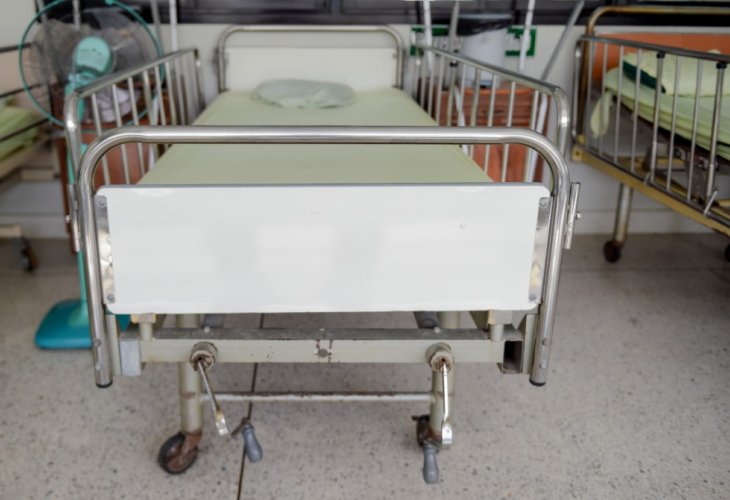Jewish Law
Guarding the Deceased: Jewish Laws on Respect, Autopsy, and Reciting Psalms Before Burial
Halachic guidance on watching over the dead, the prohibition of autopsy, reading Tehillim for protection, and maintaining dignity according to Jewish tradition
 (Photo: shutterstock)
(Photo: shutterstock)The Torah provides detailed instructions related to respect for the deceased. Firstly, the family must carefully ensure that the body of the deceased is not subjected to an autopsy, as this is a grave prohibition under Jewish law.
It often happens, especially in hospitals, that when a miscarriage (Heaven forbid) occurs, medical staff may try to persuade the mother to consent to send the fetus to a laboratory “to determine the cause of the miscarriage.” According to halacha, she must not agree under any circumstances.
Rabbi Ovadia Yosef, Rishon LeTzion, wrote in Yabia Omer (Vol. 3, Yoreh De’ah §23:26): “It is absolutely forbidden to dissect a corpse for the sake of medical study. Our sages have cried out against this practice in their writings — among them, Rabbi Meir Shapiro of Lublin in Or HaMe’ir, Rabbi Dov Berish Weidenfeld in Dovev Meisharim, and Rabbi Chaim Elazar Shapira in Minchat Elazar, who spoke bitterly against doctors who cut open the dead.
How deeply our hearts tremble at the desecration taking place in hospitals, where autopsies are performed and bodies treated as clay in the potter’s hands! This stems from a denial of Israel’s holiness and from the abandonment of faith in the eternal soul. Without moral restraint, chaos spreads. Families already shattered by tragedy must now suffer further desecration of their loved ones’ bodies — grief upon grief. Often, internal organs are even removed and not returned for burial. Woe to the generation in which such things occur! May God repair our breaches soon in our days, Amen.”
Exceptions for Autopsy
There are limited halachic situations in which a postmortem examination may be permitted — such as saving a specific, immediate life. (See further discussions by the Ben Ish Chai and Rabbi Ovadia Yosef, p. 332 in the source text.)
Reciting Psalms Beside the Deceased
It is proper not to leave the deceased unattended until burial. Psalms (Tehillim) should be recited near the body, even before midnight, as this provides spiritual protection against harmful forces and evil spirits.
The word zemirot (songs) comes from the root “to prune” — symbolizing how the recitation of Psalms “cuts down” the accusers and purifies the atmosphere around the soul. Even an onen (one whose relative has just died and burial is pending) may read Psalms during the watch. (Kitzur Shulchan Aruch 198:4; Responsa vol. 1)
Even on Shabbat, one should maintain vigil and recite Psalms near the deceased to protect the soul. (Responsa vol. 4)
Exemption from Commandments
One who guards the deceased — even if he is not a close relative, is exempt from all mitzvot, including Shema and prayer, because “one engaged in a mitzvah is exempt from another mitzvah.”
If two people are watching, one may recite prayers while the other guards. (Shulchan Aruch, Orach Chaim 71:3; Responsa vol. 1)
It is forbidden to recite Shema or other prayers within four cubits (about two meters) of a corpse or inside a cemetery, as it is considered mocking the dead — who can no longer fulfill commandments. If one did so, he has not fulfilled his obligation and must repeat Shema without the blessings, since safek berachot lehakel — in cases of doubt, we do not repeat blessings. (Shulchan Aruch, 71:7; Mishnah Berurah)
Eating Near the Deceased
It is forbidden to eat in the same room where the deceased lies, as this shows disrespect. If no other place is available, one must erect a partition (that does not move with the wind) between himself and the body. If no partition can be made, he should turn his face away while eating. (Kitzur Shulchan Aruch 151)
Smoking
A watcher who is reading Psalms and finds it difficult to refrain from smoking may turn his face aside and smoke discreetly. Halachically, smoking is treated like eating or drinking, and the same rules apply.
(Kitzur Shulchan Aruch 151)
Numerous authorities — including contemporary halachic and medical works such as Refuah BeHalacha VeAggadah (p. 11), strongly warn of the grave physical and spiritual dangers of smoking, urging all to abstain completely.
Jewish law views the body with sacred respect — as the vessel that once housed a divine soul. In all of this, the guiding principle remains: “For in His image, God made man.” (Bereishit 9:6) Even in death, we honor that image with dignity, faith, and love.

